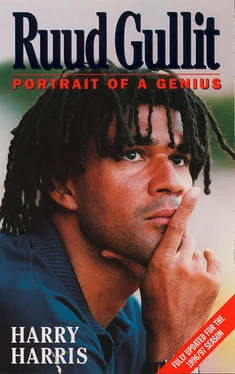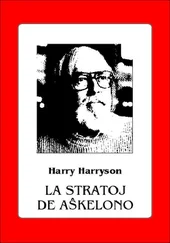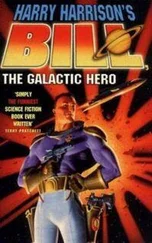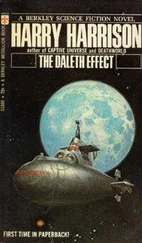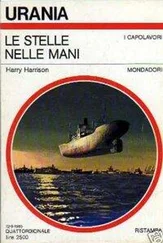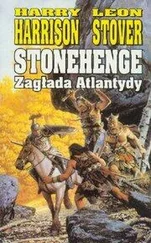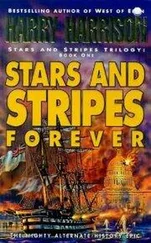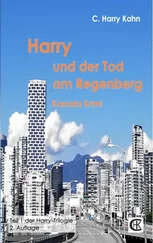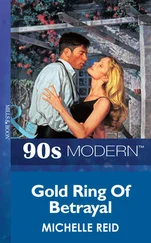Right from the outset Gullit knew the role he wanted to play as manager and the players he wanted. âI needed to know that I would be able to do the job the way I wanted it to be done. I wanted to be bothered only with football, nothing else. The club have accepted that, as they did when I named the three players I had to have: Leboeuf, Vialli and Di Matteo.
âI have a dream for Chelsea. Everyone dreams about something they want and I am just the same. I do not know if I can realise it, but all my attention is focused on Chelsea â all of it, nothing else, nobody else.â
Bates is ecstatic about Gullitâs impact. The chairman was full of praise for Gullit for building a super team for £6 million and not £60 million. Bates said: âRuud is the Tina Turner of football management â simply the best. Even in this day and age of huge transfer fees, Gullit has built this team for just £6 million. Heâs been a clever buyer of players, and our chief executive Colin Hutchinson has been a clever seller of players. Hoddle built the platform and Ruud has taken us from being just another average Premier League side into the top rankings.â
Bates was impressed that Gullit never took a single penny pay-rise to become the boss at the Bridge. Bates joked: âIf he wanted a pay rise, it would have been cheaper to give him the club!â Gullit took charge on a purely cash-for-trophies basis. Bates explained: âHe wanted no extra cash for becoming manager. He said he would rather we spent the money on the team. We said we would give him bonuses for success. Winning the FA Cup for Chelsea and taking the club to Europe have already made that happen for Ruud. He has taken us a step further by elevating us into the international ranks. This club will now never be out of the spotlight, not just in this country but across the world. Weâre now on the big stage. Weâre also starting our own radio station and going on the Internet.â
Manchester United manager Alex Ferguson, debating the heated subject of the value and motives of overseas stars, justified his purchase of five in a summer-spending spree before the start of the 1996/97 season. âThey are young with more to come, unlike some of the better-known stars who have come into our game here from Italy. You canât beat the clock and I wonder how long some of them will play. I am building not just for today but tomorrow, although I must admit that I have a tinge of regret not taking Ruud Gullit when he became available. But I am afraid his agent put me off.â
CHAPTER ONE
âIâm not a foreigner â Iâm a world travellerâ
Ruud Gullit loves to talk. He is knowledgeable on a wide range of subjects, of which football is not top of the list. But he doesnât just talk for the sake of it. He sees himself as a teacher and nothing seems to give him greater pleasure than an appreciative audience. He likes nothing better than to impart his wealth of, knowledge about the game to others, whether they are team-mates or journalists. In his company I have been riveted by his wide range of subjects â including adoption, surrogate mothers, and environmental issues. Ruud would rather switch on the television to watch a fascinating documentary than bore himself with an uninteresting football match.
I followed Jurgen Klinsmannâs one and only glory season in English football and there are numerous similarities. There are also some stark contrasts. The smiling German symbolised English soccer, season 1994/95. Every magazine, newspaper, radio and television programme featured Jurgenâs endearing features. The World Cup star came to English football with a reputation of diving, but he did the right things, said the right things, smiled, and won the hearts and minds of the footballing nation. But after a while Klinsmannâs interviews seemed to merge into one. Then he âbuggered offâ, as Alan Sugar put it succinctly, after just one season, and the Spurs chairman raised suspicions about the Germanâs motives. Things came to a head during an interview for BBCâs Sportsnight programme, when Sugar threw Klinsmannâs Tottenham shirt to the floor in disgust.
Whether or not Klinsmann came for the money and to rekindle a diminishing career, the Premiership felt it would be poorer for the loss of the Football Writersâ Footballer of the Year. But the following season, Gullit and many more foreign stars arrived to play in the Premier League.
When the news of Gullitâs free transfer move from Sampdoria broke in the summer of 1995, there was the usual media speculation about the salary he would be earning in England. It was believed his original two-year deal with Chelsea amounted to around £1.6 million, a sum which would prove to be a bargain for the club, as the wages were spread over the duration of his two-year commitment without any transfer fee, at a time when prices were soaring. And now they have a successful manager as well as a player for virtually the same amount of money.
When Gullit first arrived at the Bridge, Ken Bates recalls how money was the last thing on the Dutchmanâs mind. âIâll tell you a little secret about Ruud which sums up the man perfectly. Ruud had been at the club a couple of months and he still hadnât bothered to open an English bank account. Colin Hutchinson called him over and said to him: âIâve got your wage cheques here.â Ruud told him, âDonât worry, Colin, youâre my banker. Keep the cheques in the drawer until I need them!â
âHeâs got a lovely dry sense of humour. He is also very polite and respectful. One match day he spotted me before the game at my table and came over. I looked up at his dreadlocks and got out a comb. He just burst out laughing.
âRuud is really the perfect diplomat. He never puts a foot wrong. The only trouble heâs experienced occurs when heâs been misquoted. His influence goes much deeper than the superficial. There was annoyance within the club when he first joined that Gullit was the superstar and the rest didnât matter and that they were not good enough. It was patently untrue, but it hurt. Then, when Gullit was injured, the team won as many games without him as they did when he was in the team. Thatâs not belittling his contribution in any way. In fact itâs a compliment to him because it reflects his overall influence on the team whether he is playing or not. The truth is that Gullit was largely responsible for helping Glenn to get the younger players around to the managerâs way of thinking.â
But there is not a hint of indulgence at the Bridge. Ruud works as hard as anyone in training and on the pitch. His influence has been immense, his sincerity unquestioned. A testimony to his sheer genius came from England and former Chelsea manager Glenn Hoddle. âHe is enjoying his football. In this game you learn by example. The players are becoming better because of him. When I was at Chelsea we signed Ruud as a sweeper, but later in the season we moved him into midfield and a lot of that credit has to go to David Lee. He took over as sweeper and did well. Then we started getting the ball to Ruud as quickly as possible. In some games in England, midfield can be like a tennis match. But we tried to build from the back and get it to Ruud and that allows him to go and influence the play. I knew he had another three years in him when he came to Chelsea. He is fit, got the talent and is still in love with the game. While heâs got that, he is going to be a big influence at any club.â
His influence on players like Newton, Myers, Duberry, Sinclair and Furlong grew more important as the months went by and they got to know him better. Bates pointed out: âHis total indiscrimination towards colour has made a great impression on our black players, particularly the young ones.â Ruud has always been outspoken on issues of racism in soccer, and attended the FA backed âKick Racism Out of Soccerâ campaign just a couple of months after arriving in England.
Читать дальше
